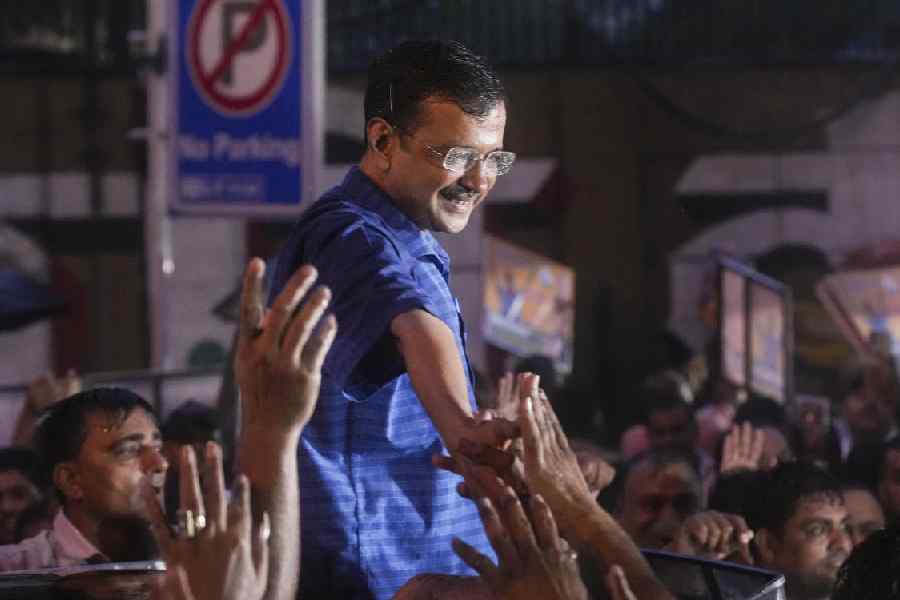The Supreme Court on Friday granted bail to Delhi chief minister Arvind Kejriwal in the ₹100-crore excise policy case, but imposed several restrictive conditions.
The AAP leader has been asked not to go to the state secretariat, sign official files or make comments on the cases.
In his first remarks after being released from Tihar jail, Kejriwal said: “These anti-national forces that are trying to weaken the country, divide it... I have always fought against them and will continue fighting against them.”
The Haryana polls are scheduled on October 5.
One of the judges on the bench, Justice Ujjal Bhuyan, not only differed with the conditions restraining Kejriwal from signing files and entering the secretariat but also questioned the legality of his arrest. Justice Surya Kant, heading the bench, took a contrary view on both issues. Justice Bhuyan said Kejriwal’s arrest 22 months after the registration of the original case was illegal.
Since another two-judge bench of the Supreme Court had on May 10 and July 12 imposed the conditions while granting Kejriwal bail in a parallel case registered by the Enforcement Directorate relating to alleged money laundering, Justice Bhuyan said he was refraining from expressing any further opinion.
“Though I have serious reservations on clauses(b) and (c) which debars the appellant from entering the office of chief minister and the Delhi secretariat as well as from signing files, having regard to judicial discipline, I would refrain from further expressing my views thereon at this stage since those conditions have been imposed in the separate ED case by a two-judge bench of this court,” Justice Bhuyan said.
However, Justice Kant upheld the validity of the arrest and the conditions restraining Kejriwal from discharging his chief ministerial functions. The two judges passed separate but concurrent judgments granting Kejriwal bail in the case registered by the CBI.
“In our considered view, although the procedure for the appellant’s arrest meets the requisite criteria for legality and compliance, continued incarceration for an extended period pending trial would infringe upon established legal principles and the appellant’s right to liberty, traceable to Article 21 of our Constitution...,” Justice Kant observed in his judgment.
Later in the day, AAP said in a statement: “The only files that are signed by the chief minister are those that have to go to the LG (lieutenant governor), for which he has permission from the Supreme Court. Therefore, no work of the people of Delhi will stop.”
The party said that the entire narrative of a constitutional crisis is being created by the BJP who now realises that with Kejriwal’s release, AAP will sweep the upcoming Delhi elections.
Senior AAP leader Manish Sisodia said that the party is going through the judgment to see if they can appeal against some of the restrictions imposed by the court.










